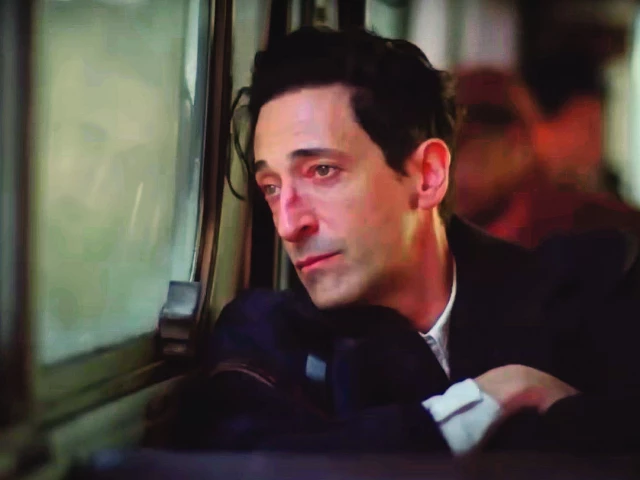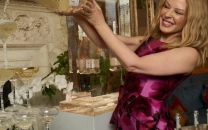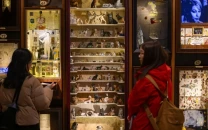A flawless intrusion
The Brutalist' director reignites the discussion of AI in creative fields

Historical drama film The Brutalist has been attracting criticism for its use of AI to tweak Hungarian dialogues, to the point that director Brady Corbet had to clarify to The Hollywood Reporter that the refinement was done for accuracy and with respect to the actors' craft, and that it boiled down to a matter of saving time. However, this does call into question the extent to which AI should be allowed influence in the industry.
When the internet began to raise concerns over the integrity of the film and whether or not it should qualify for awards, Corbet explained, "Adrien and Felicity's performances are completely their own. They worked for months with dialect coach Tanera Marshall to perfect their accents."
Providing insights on the technology, he further elaborated, "Innovative Respeecher technology was used in Hungarian language dialogue editing only, specifically to refine certain vowels and letters for accuracy. No English language was changed. This was a manual process, done by our sound team and Respeecher in post-production."
Deepfakes spare no one
While the internet might cut The Brutalist some slack after this statement, it is hard to deny that the use of AI across artistic pursuits is steadily becoming pervasive. With many voicing support for the technology, AI has seeped into every possible means of content creation, be it slop memes or deepfakes that started out as harmless edits but have spiralled into something much worse.
During January 2024, pop megastar Taylor Swift fell prey to AI-generated pornographic images of herself that circulated for all to see. While someone as powerful as her could surely put up a legal fight against this contemptible act of misogyny, this incident did make one thing clear: this upsurge of AI use would spare no one. And now, the film and the television industries are at risk.
Local implications
If you've been unfortunate enough to be exposed to the sordid side of the internet, you might be aware of just how frightening deepfakes can be. When popular drama serial Kabhi Main Kabhi Tum was at the peak of its success, an intimate edit of the two leads went viral. It should be noted that what was portrayed in the clip was never filmed yet it looked concerningly real, hence sparking outrage.
Additionally, a deepfake video of Kabhi Main Kabhi Tum star Hania Aamir circulated online, depicting her in clothing she never wore. Addressing the disturbing content on Instagram Stories, she wrote, "This AI stuff is very scary. Can there be some laws in place? These are not my videos if anyone is convinced they are."
And this wasn't the first and last time actors were subjected to deepfakes that breach the ethics of privacy and consent. Various deepfakes have been popping up across social media depicting individuals kissing, despite them never having done so.
TikTok influencers like Manahil Malik and Imsha Rehman have also fallen prey to the growing deepfake epidemic, sparking important conversations about digital safety. This alarming trend has left many users, particularly content creators, feeling vulnerable and distressed, as their privacy is at risk simply because of their online presence.
One can only imagine the fear of those who have an active career based on their public personas. Actors, especially those working in the local industry, have certain expectations to abide by. Their mere presence on the small screen places them on a pedestal beyond their will, making them role models to young audiences as they rise to fame.
So when someone spreads this unscrupulous level of misinformation about them, any artist is sure to take a hit - be it psychologically, even. In a cultural climate that prioritises reservedness and sobriety of character, naive netizens are likely to be appalled by content like this.
In this case, virality would fuel vitriol against artists, who are already placed under public scrutiny for how they wish to lead their lives. Except now, if AI is allowed to permeate the digital landscape without any resistance, artists will constantly have to defend themselves against things they've never done.
Craft under threat
Perhaps, it could be argued that mass availability is the problem. But even with professional minds handling the technology, incorporating any amount of AI compromises on the humanness of art. This is what art practitioners have been telling us ever since AI theft became a common phenomenon.
The rise of AI-generated images has disrupted the work of digital artists, sparking widespread protests online. In some cases, this has driven artists to abandon platforms like Instagram out of fear that their creations might be fed into AI, resulting in works stripped of human sentiment and authenticity.
If left unchecked, this trend could penetrate further into the entertainment industry. As AI continues to evolve as a tool to eliminate human imperfections, we may find ourselves saying goodbye to the charm of embracing flaws. In an emerging era that prioritises perfection over artistic license, it's becoming increasingly unlikely that the imperfections filmmakers once found captivating will make it into the final cut.
We've had memorable off-script instances like Quill dropping an Infinity Stone in Guardians of the Galaxy and Terry crashing his scooter in American Graffiti. But impromptu moments may as well be forgotten in a future that might consider an actor's mistake as just that - a human flaw that can easily be removed.
"There is beauty in imperfections," as Arcane so poignantly reminded us recently. The fact that this reminder comes from an animated series - a production that involved the blend of a variety of artistic pursuits - should be a fitting wake-up call that AI doesn't aid art and artists, only deflates their craft.



















COMMENTS
Comments are moderated and generally will be posted if they are on-topic and not abusive.
For more information, please see our Comments FAQ